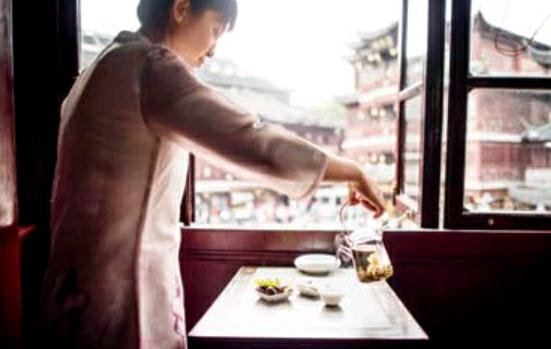Photographing Shanghai
by+Laurent+Hou
From September 6 to 13, 2016, a group of 10 foreign photographers set out to capture images of Shanghai unlike any before. They explored the citys hidden nooks and crannies, as well as clashes between tradition and modernity, elegance and spontaneity. The project produced a wealth of striking images of the metropolis that was once dubbed Paris of the Orient.

The team featured world-class talents including legendary Associated Press photographer Nick Ut, who won the 1973 Pulitzer Prize for capturing one of the most memorable images of the 20th Century:“Terror of War”, in which children flee napalm bombing during the Vietnam War. Another participant, Neal Ulevich, won the Pulitzer in 1977 for “photographs of disorder and brutality on the streets of Bangkok”before working as a photojournalist in China between 1983 to 1988. Two more American photographers worked alongside them: Michael Nelson, a senior photographer working for the European Pressphoto Agency who has won several awards including those from World Press Photo and the National Press Photographers Association (NPPA), and Ringo Chiu, a freelance photojournalist with Chinese origin. The other participating photographers were Yamada Shinji from Japan (Kanagawa Shinbun), Shin Dong Yeung from Korea (Korea Joongang Daily), Olesya Kurpyaeva from Russia (Mayak Radio), Vincenzo Rubano from Italy (La Repubblica), Fred Dufour (AFP) and Laurent Hou from France (China Pictorial).


For some photographers, the event facilitated their first trips to Shanghai. One such participant, Michael Nelson, enjoyed the completely fresh experience and tried to understand the city as much as he could during the short stay. For others like Neal Ulevich who had been to the city before, the project presented a perfect opportunity to catch up with the tremendous changes that have been happening in Shanghai. In his speech at the launch ceremony, Nick Ut praised the beauty and singular aura of the metropolis, emphasizing its uniqueness. As much as he likes Los Angeles, New York, Paris and Hong Kong, he noted that a different vibe in Shanghai caught his attention, and he warmly recommended the city to everybody. Fred Dufour, AFPs Beijing correspondent, had often visited Shanghai, but still appreciated the opportunity to spend eight full days exploring the buildings and digging deep into the lives of the people, tasks that can hardly be accomplished during a one or two-day assignment.


Shanghai caught the attention of the photographers in a variety of ways. The clash between tradition and modernity is the core of both Nick Ut and Michael Nelsons pictures. A Nick Ut photo of a young man practicing Tai Chi in a park is a good example: At first, it seems to represent Chinese tradition, but closer inspection reveals that the man is holding a brand new smartphone and that the mist behind him isnt natural; its produced by a device in the park.

Similarly, Michael Nelsons shot of a man flying a kite on the Bund creates a striking juxtaposition between a traditional hobby and the futuristic skyline of Pudong. Neal Ulevich tried to catch moments that“clicked” and grabbed a perfectly timed picture of a young man playing soccer. Ringo Chiu managed to capture a soap bubble near Yu Garden that nicely accented his poetic vision. Yamada Shinji was drawn to the people in parks and old streets. Shin Dong Yeung focused on traditional places such as Yu Garden. Olesya Kurpyaeva alternated between landscapes and portraits to depict the city as she saw it. Although he is a writer by trade, journalist Vincenzo Rubano shot the city with great enthusiasm and didnt hesitate to communicate with everyone he met. Fred Dufour focused on the ambiance that underscores daily life in the city. Laurent Hou zeroed in on the romantic side of Shanghai, shooting a lot at night.
Although many strong and very visually appealing scenes attracted the attention of several photographers, in the end only 10 images were chosen as the visions of Shanghai. The group of pictures provides a diverse and stunning view of a city so massive and complex that so few snapshots can hardly do it justice.
China Pictorial2016年10期
